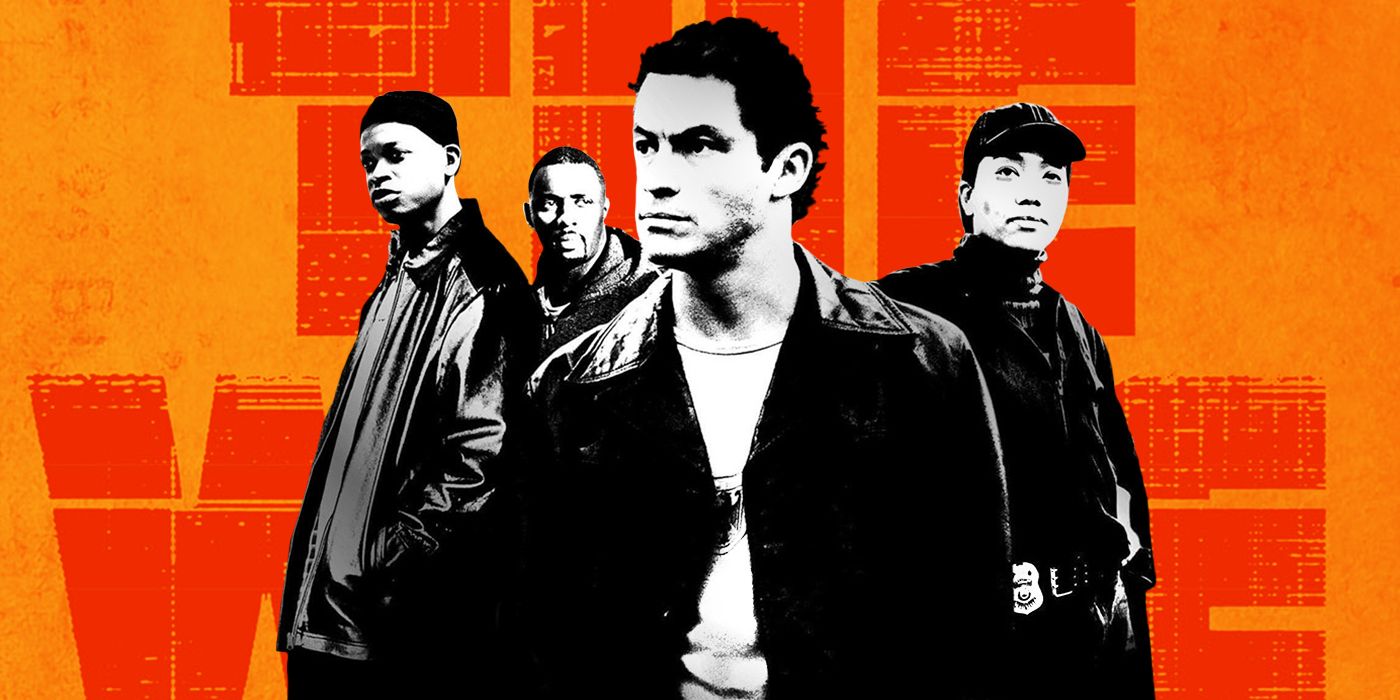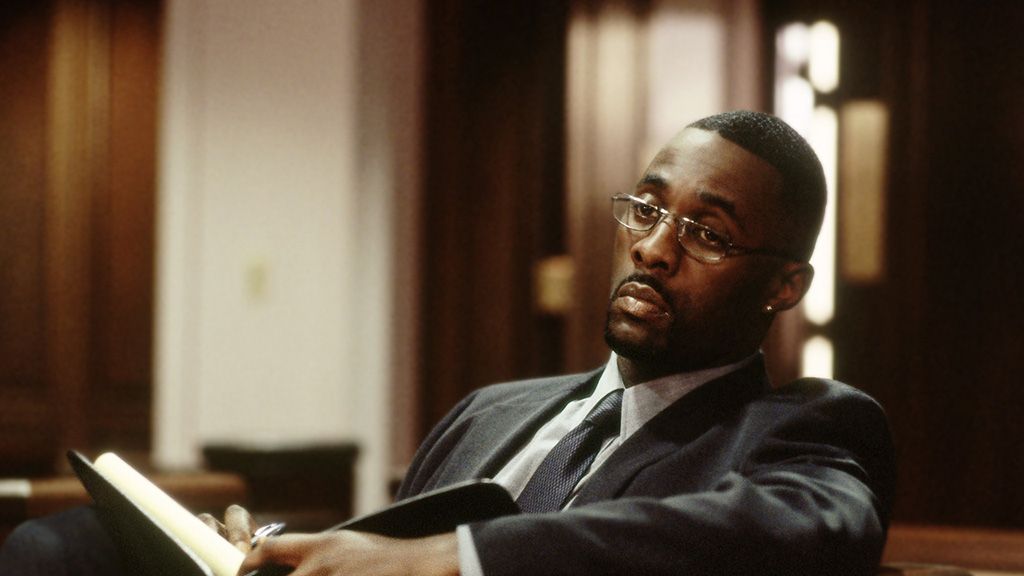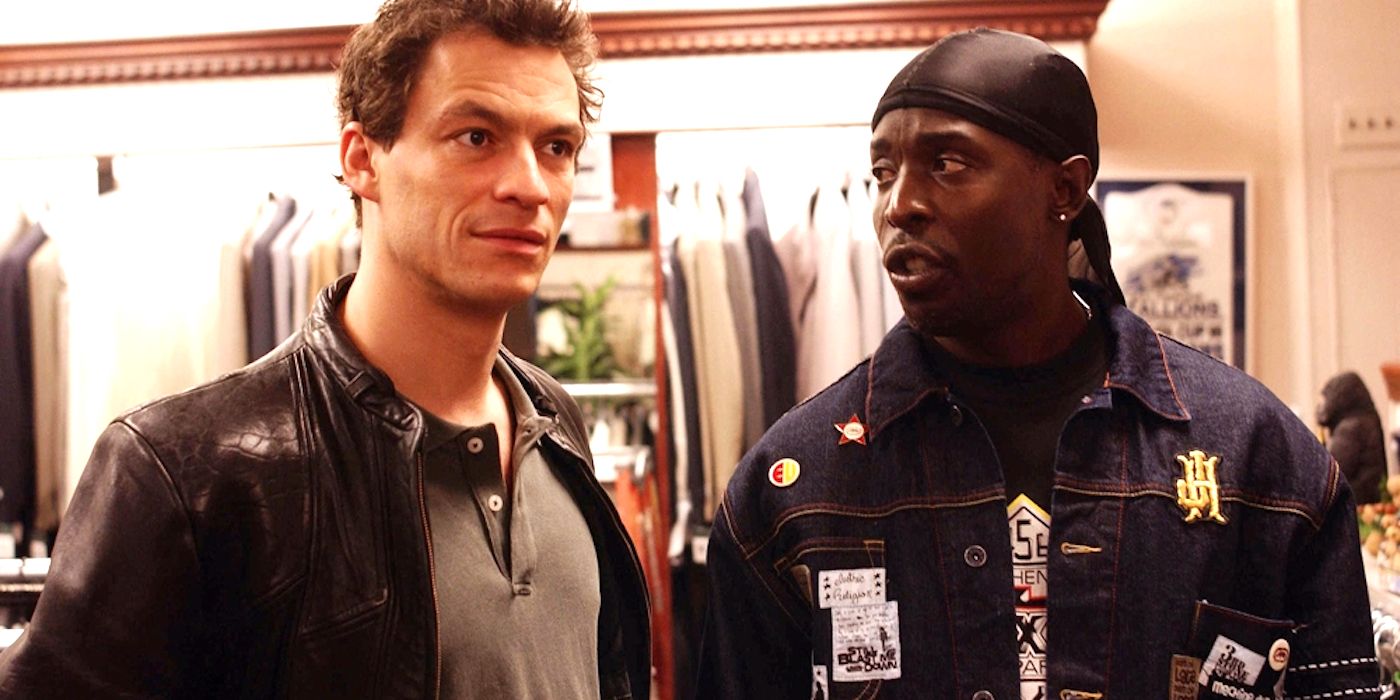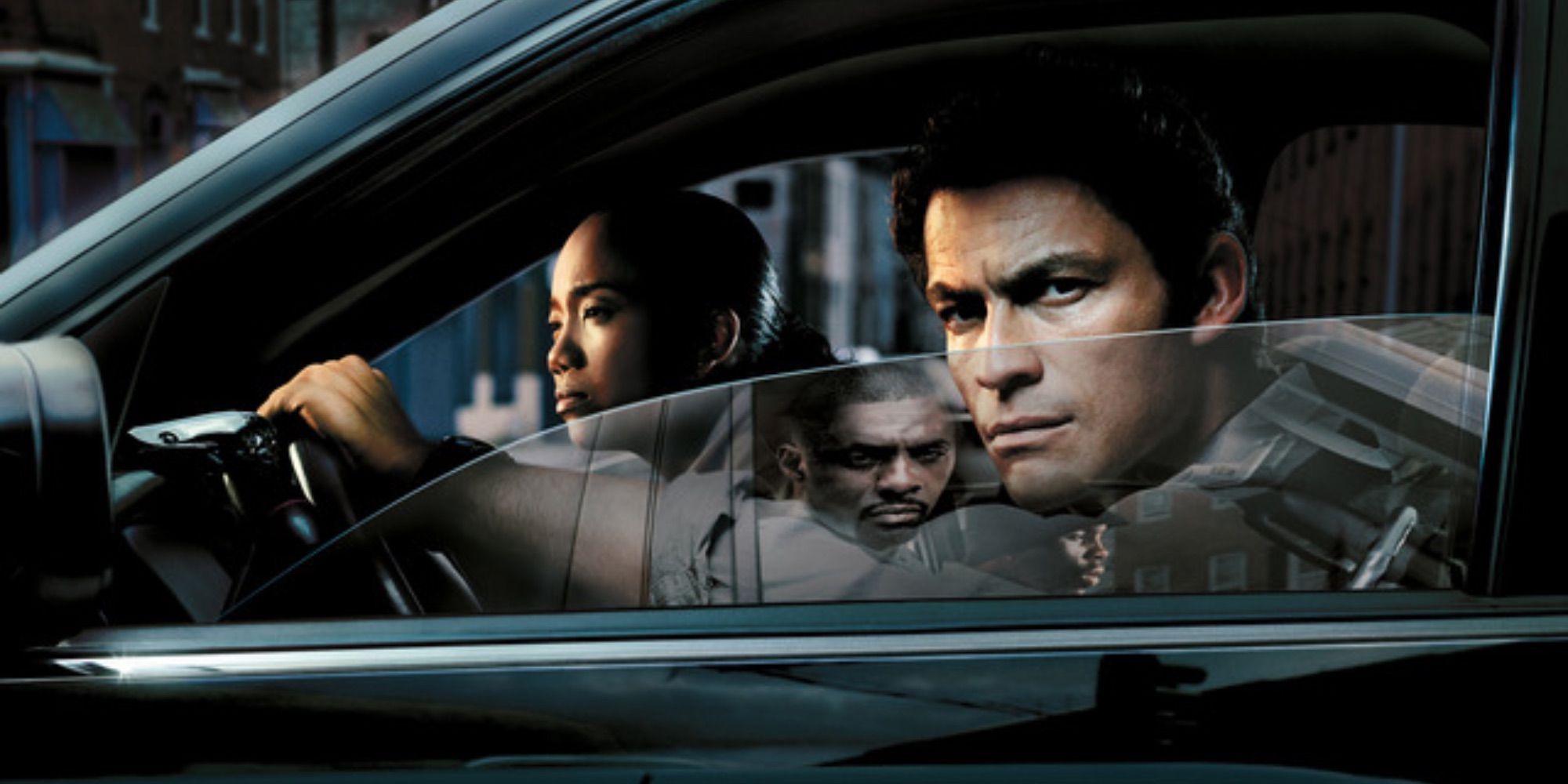HBO is renowned for its history of excellent casts, among them the members of the DiMeo crime family of The Sopranos and the lords and ladies of Westeros in Game of Thrones. However, the best cast that the network has ever produced remains that of The Wire. Delivering a level of gritty realism paired with Shakespearean tragedies and downfalls, the actors and characters remain the best, even 21 years after the show first premiered. From Dominic West's Jimmy McNulty, Idris Elba's Stringer Bell, and, tragically, the late Michael K. Williams and Lance Reddick as Omar Little and Cedric Daniels, respectively, these are some of the best performances to ever grace the silver screen coming together to help deliver one of the best drama series HBO has ever produced.
'The Wire' Trades Celebrity for Reality
One of the biggest names in The Wire is most certainly Idris Elba, providing a commanding and impactful performance as Stringer Bell, the second in command for the first few seasons’ most prominent gang. Elba is now a household name, but during the time that The Wire was first being produced, he was a relative no name, the series giving him a substantial boost on his road to eventual stardom. A similar story holds true for Michael B Jordan. Before he had huge credits, such as the MCU’s charismatic villain Killmonger and the title role in the Creed franchise, he was Wallace on The Wire, a child forced by circumstance to work as a low-level drug dealer. Jordan’s performance is incredible, which makes it all the more impressive that this was only his fourth real acting role. What these two actors have in common is that before The Wire, they only appeared in bit parts, small roles in the background. The Wire thrust them into the limelight, elevating them from the background to major characters where they are given the space to properly show off the immense talents that they really were.
HBO has a huge pedigree within the competitive world of TV, and this level of pedigree understandably attracts a great deal of celebrity attention. Big HBO series are often supported by a star-studded cast if not one or two big well-known actors. Modern projects like Euphoria and The Last of Us host big-name actors like Zendaya and Pedro Pascal. Older projects like Game of Thrones and True Detective attracted other household names like Sean Bean, Matthew McConaughey, and Woody Harrelson. The Wire, however, is unique among its ranks. The series had pretty much no big-name stars attached to it (at the time of its filming, that is), employing mostly character actors and Baltimore locals to fill the ranks of its cast. The show made stars of its actors; it didn’t require stars for its success.
There’s nothing wrong with having celebrity actors in a realistic and grounded TV series: shows like True Detective prove that quite effectively. However, with that in mind, their presence can make it hard to immerse yourself in the world itself, to see the characters as people and not just actors playing their roles. The Wire excels at this; since it employs mostly character actors and locals, their conversations and just general presence feel so smooth that it enters another level of audience immersion. When the show shifts to the dockworkers in season 2 (which is still really great TV, The Wire doesn’t have a bad season) the dockworkers don’t feel like beautiful millionaires pretending to be working-class average joes: they feel real. They’re schlubby, they have unkempt facial hair, and one of the most important characters in that season is dramatically balding. It doesn’t feel presented or dressed up in any way.
Everyone on 'The Wire' Has Depth
A common criticism of police procedural shows is that by focusing so much on one side of the law the shows can eventually feel like "copaganda." Police procedurals are some of the most reliably popular and long-running shows on television, but even procedurals that are well-made with good characters can start to feel like they’re pushing a blunt and simplistic pro-police message onto their audiences. Stories about how the criminals on the other side of the law are just mindless monsters, held in check only by the brave police force who can hold them at bay, are common and propagate genuinely dangerous worldviews that are now under increasing scrutiny. It’s a formula that feels intrinsic to the genre, but The Wire proves that’s not necessarily true. By doing away with some edgy or gritty version of what crime and punishment is usually presented as, The Wire and its cast delve into some incredible tragedy and pathos that underpins the entire series. Most of the characters in the show are based on real people that became local legends in Baltimore — even characters like Omar, who seem too far-fetched to exist, have a real story behind them to back them up. Series creator David Simon worked as a police reporter for years before he eventually brought The Wire to the small screen, and it’s that history and fundamental connection with the place itself that sets the series apart from other procedurals.
While we are given ample room to get to know the various detectives, informants, judges, and lawyers on one side of the law, at the same time, we’re given lots of opportunities to get to know the dealers, criminals, and gangsters that make up the other side. Whether it’s high-level players that control the entire system, like Wood Harris’s Avon Barksdale, or low-level drug dealers who report to him from the various territory that he owns in the city, we learn about their lives, their struggles, and their view of an incredibly bleak-looking future. There’s no maniacal cackling cartel leader that’s pulling the strings behind everything, no two-dimensional cigar-smoking villain that is there just for the audience to hate. Every character is given moments to show off their humanity and why they do what they do, whether that’s because of a familial obligation, an idea of what a “real man” does, or just because this is where you grew up, and this is just how things work. Even Barksdale, the man ostensibly behind the entire conspiracy that pins the first season, is just another human being, the same as the detectives. He’s three-dimensional, and he has a history with the other characters that dictate his decisions. It doesn’t matter that he’s a gang leader in a police procedural, he’s a person first.
On the opposite end, you have characters like Jimmy McNulty (West) and Cedric Daniels (Reddick), who at first glance might seem like standard archetypes, but the audience is once again deceived by the startling depth that the series puts forward. McNulty initially might come off to someone genre-savvy as the traditional charming noir detective – a man who follows a case to the end despite what anybody says, burdened by substance abuse problems but in a way that makes them cool and detached. However, the show takes this archetype to its logical conclusions: his precinct hates him for being a pain to work with, and his personal relationships are fraught, thanks to his obsession with the job and addiction to alcohol. Inversely, Daniels might immediately be identified by this same genre-savvy viewer, as the tough and overbearing police lieutenant, a character who exists to cover the real detectives in “red tape” and make it impossible to actually solve the case. Similarly to McNulty, this is immediately shown to be more than just simple clichés, helped along by the late Lance Reddick’s incredible acting. He’s a character that forces his team to go through things the right way, but it’s because of this that substantial progress is made in their case. When the brass starts leaning on them, he sticks up for his team, he trusts and respects them, and they feel the same way about him. By doing away with lazy archetypes, every character feels new and full of potential for interesting character moments and dynamics. Characters that are usually just stern or serious in other shows of its genre are allowed to be vulnerable, funny, and always unmistakably human.
'The Wire' Brings a Sense of Authenticity to Its Story
The Wire’s aspirations further eclipse other police procedurals when its vision begins to expand with each subsequent season, jumping from critiquing the institutions of gangs and law enforcement to the inclusion of union workers, the political machine, and in the debatable best season of the series: the school system. It’s easy at a first glance to imagine how this widening of the perspective and critiquing of every facet of Baltimore life can make most series buckle under the pressure, but, again, the show excels because every character in these institutions feels real. From the aforementioned longshoreman of Season 2 to the entire political system of Season 3, everyone within has their own dimensions and stakes in their given institutions. Far before Stranger Things was impressing us with its incredibly talented stable of child actors, Season 4 of The Wire casually introduced an entirely new cast of young performers that echo the tragedy and pathos of their adult counterparts with remarkable ease. Everywhere you look in the city, you see a story worth watching and a performance worth praising.
There are no exposition dumps, no narrator to guide the audience through what’s going on. Instead, the series just plops you straight into these realistic scenes with human characters, and the audience slowly but surely pieces everything together. It’s a series that rewards an attentive eye and uses its cast in remarkable ways. Plot lines diverge and meld into each other, institutions crash up against one another while trying to keep the city together. Game of Thrones would eventually utilize this similar approach to make Westeros feel like a lived-in setting, but its older sibling does the job far better. All the story, all the exposition, and the feeling of the city itself are filtered through these performances and cast, and through them, the audience begins to understand everything. It’s an extremely difficult landing to stick, but the show does so admirably. As Detective Freamon (Clarke Peters) says in the first season, "All the pieces matter."
By bringing together a respect for the history of Baltimore, an even-handed approach to character depth and development, and a powerful set of performances, The Wire remains one of the great standouts in terms of ensemble television series. Combined all together, the show achieves a level of reality and connection to its setting that few shows attempt, let alone achieve. While the passing of actors like Lance Reddick and Michael K. Williams is tragic, there can be some comfort in the fact that their incredible talent is forever immortalized in shows like The Wire.




